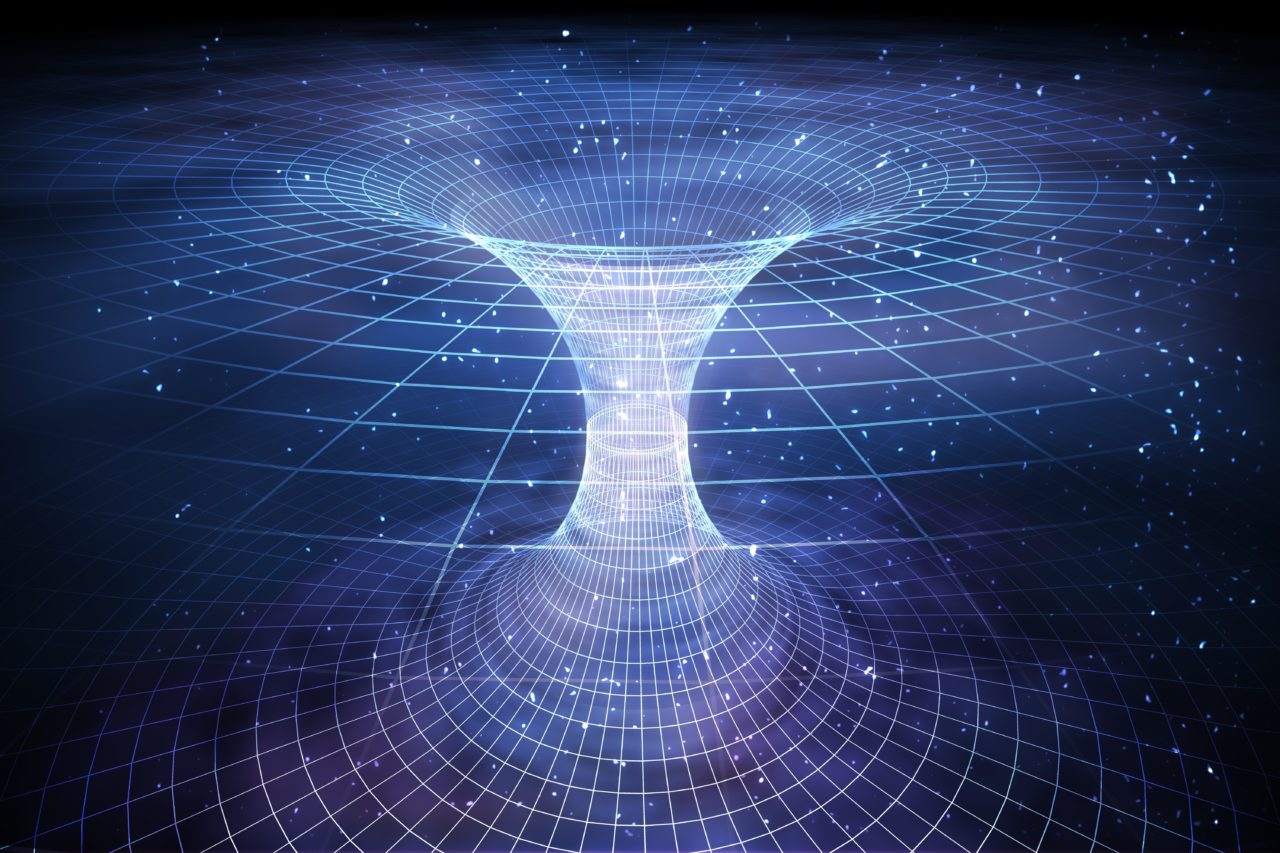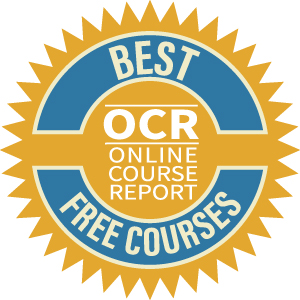
Physics and astronomy are sciences that are concerned with the observation of natural occurrences. Physics as a whole includes astronomy since physics is the observation of the earth itself, while astronomy is a more narrow science. Astronomy and astrophysics are usually terms that are used interchangeably, as physics greatly intertwines in the study of astrophysics. Physics is used to create grand theories that rationalize the evolution of stars, galaxies, and the universe. Astronomy requires you to have a solid grasp of physics, but astronomy is not necessarily needed to study physics.
Featured Programs
- University of Arizona Astronomy: Exploring Time and Space
- Rice AP Physics
- University of Virginia How Things Work: An Intro to Physics
Disclaimer: Some courses may include an affiliate link. Courses were chosen first based on the methodology with affiliate links only added after the ranking was complete.
There are many different careers that you can pursue by learning physics and astronomy, and it is extremely valuable to study these subjects online. While you might need to venture off of the computer to look at the stars or do physics experiments, you can get a solid grasp of these concepts with online courses. The ten courses listed below are all free online courses that cover either physics or astronomy or a mix of both and they have been chosen using Online Course Report’s exclusive methodology. If you have been looking for a way to pursue a physics or astronomy certification online, look no further than these exciting best free online physics and astonomy courses.
Ranking 10 Great Free Online Courses for Physics And Astronomy
1. Moons of Our Solar System

Provided by The Open University via Future Learn
Many of the planets in our solar system have moons, and earth is the only planet that has one moon. This course provided by the Open University and hosted by Future Learn explores the diversity of moons and takes about eight weeks to complete if you work at a pace of about three hours a week. Future Learn is an educational website that provides free courses to users on a rotating basis, partnering with different universities and institutions to do so. All Future Learn courses are offered for free, but many offer an added flat fee in order to access extra benefits like a certificate of achievement.
Topics in this best free online course in astronomy include an exploration of what moons are, what they are made of, volcanoes on moons, how our moon has been explored, what we’ve learned from the moon, the future of lunar exploration, and which moons could host life. By the end of this best free online course, students will have developed more awareness surrounding moons and learned how to generally explain lunar orbit and how it affects the tides. Professor David Rothery is the instructor for this course, and he works in the department of planetary geosciences. Many students have given the course a five-star rating, saying that it definitely achieves the “wow” factor!
Cost: Free
Certificate: Yes (with $74 fee)
Time to Complete: Approximately 8 weeks
Curriculum: Beginner
User Experience: Excellent
Quality of Instruction: Excellent
Pros:
- Start anytime and go at your own pace, even on mobile
- Takes you through our own moon as well as many others
- Learn how the moon affects our planet and the tides
Cons:
- Certificate of achievement does not come free with the course
2. Introduction to Physics

Provided by Khan Academy
Khan Academy is a nonprofit educational website that was founded by Sal Khan with the goal of providing users with free, short lesson bursts. The lessons on Khan Academy are mainly targeted toward those in K-12 schooling but can be incredibly beneficial for those who just want to get a basic grasp on a concept. Khan Academy is free to join and all of the lessons are free to access, and there are a variety of subjects, videos, quizzes, and instructors.
In the course, Khan Academy’s short lessons will cover topics like displacement, velocity, time, acceleration, and kinetic energy. There is a quiz for two of the units and then one final exam, and you can gain mastery points of the subject for each one you complete. There are 500 possible mastery points to be gained from the course, which shows your proficiency level from beginner to proficient. By the end of the top free online physics course, you will have learned about subjects like calculating average velocity and speed, position vs. time graphs, how to calculate acceleration, and how to work with kinematic equations. Khan Academy has been a trusted resource in the educational community for many years now, and you will certainly not waste your time solving problems on this site.
Cost: Free
Certificate: No
Time to Complete: However long is necessary
Curriculum: Beginner
User Experience: Excellent
Quality of Instruction: Excellent
Pros:
- Start anytime and go at your own pace
- Offered by one of the most well-trusted K-12 education platforms
- Learn how to calculate velocity, time, and acceleration
Cons:
- Certificate of achievement does not come with the course
3. Astronomy: Exploring Space and Time

Provided by the University of Arizona via Coursera
Coursera is an online educational platform that is designed for professionals, whether it’s just one course or an entire degree. Coursera offers students the opportunity to pursue classes and programs online through preeminent universities and institutions, offering a shareable certificate at the completion of the course. These certificates are perfect to share with employers, alongside a resume, or on a professional networking site like LinkedIn. Nearly a quarter of the students who completed this course began a new career after finishing. The course is provided by the University of Arizona, which is a public research university in the US.
This free online astronomy course is designed for anyone who has an interest in modern astronomy, meaning you want to observe the stars, constellations, or planets. The course will help get students up to date on the most important and most recent astronomical discoveries while providing scientific supporting information for those who have no scientific background. The course takes around 43 hours to complete, and all information provided is at an introductory level that anyone will be able to understand. By the end of the course, you will have learned about subjects like the night sky, the tools used by astronomers, and the history of astronomy.
Cost: Free
Certificate: Yes
Time to Complete: Approximately 43 hours
Curriculum: Beginner
User Experience: Excellent
Quality of Instruction: Excellent
Pros:
- Start anytime and go at your own pace
- Offered by a preeminent US research institution
- Learn how to observe the night sky while getting beginner scientific background
Cons:
- Longer course, not good for those who want a brief overview
4. AP Physics 1

Provided by Rice University via edX
While this course is specifically designed to help students pass the AP physics exam, passing the exam requires a deep understanding of physics, which is what the course provides. edX is a comprehensive online educational platform that is one of the most trusted MOOC (massive open online course) providers on the internet. There are a selection of courses on the site that are both paid and free, at a variety of different interest levels, proficiency levels, and topics. Many institutions partner with edX because of how trusted the site is and how long it has been providing quality education. This specific course takes about 18 weeks to complete and is offered by Rice University, one of the more prestigious universities in the US.
A verified certificate can be added to this free course for an additional charge of $49, which is a certificate that can be shared with employers or on professional networking sites. While you will also be taught about questions that are specific to the AP physics exam during this course, the class could also prepare you to take a college-level course or just to have a comprehensive understanding of physics. While the course does operate at a beginner level, it does assure you have some knowledge of math and science.
Cost: Free
Certificate: Yes (with $49 fee)
Time to Complete: Approximately 18 weeks
Curriculum: Beginner
User Experience: Excellent
Quality of Instruction: Excellent
Pros:
- Start anytime and go at your own pace
- Offered by a preeminent, prestigious university
Cons:
- Specifically designed for AP physics exam
- Certificate is not free
5. Astronomy – State of the Art

Provided by Udemy
This free online astronomy course, taught by Prof. Chris Impey, teaches students about the amazing modern discoveries of astronomy. The course is more than 7 hours long and is perfect for those who want a deep-dive into modern technological advancements. Udemy is an online educational platform that allows instructors to create and upload their own content to the site, adding to the Udemy catalog. Courses can be either paid or free, and are not reserved solely for professional purposes. There are art, music, and design classes on Udemy as well for those who want to stretch their creative muscles.
Astronomy – State of the Art has had over 100,000 enrolled students so far, and the course has a rating of 4.7 stars out of 5 on the site. By the end of the course, you will be very familiar with the cutting edge information of astronomical discovery, including our own Solar System as well as the distant universe. You will also learn about how astronomers grapple with deep issues like whether or not there is life beyond our Earth. Finally, you will gain an appreciation for modern telescopes and other tools that allow us to view the sky.
Cost: Free
Certificate: No
Time to Complete: Approximately 7.5 hours
Curriculum: Beginner
User Experience: Excellent
Quality of Instruction: Excellent
Pros:
- Start anytime and go at your own pace
- Asks the big questions about life and the existence of it
- Learn about modern telescopes and other viewing tools
Cons:
- Certificate is not free
6. Physics 1: Classical Mechanics

Provided by MIT Open Courseware
MIT, or the Massachusetts Institute of Technology, is perhaps one of the most prestigious universities in the US. Even the most accomplished students can only dream of attending, but thankfully, their open courseware site is full of free course materials. This course was originally taught in Fall of 2008 by Prof. Adam Burgasser, and is an introduction to classical mechanics. While the course does assume you have some knowledge of calculus, this is something you could brush up on before beginning the class. While you do have to pace yourself during the course and there are no set deadlines or an instructor overseeing, all of the materials are available for your use.
By the end of the free online physics course, you will have learned about topics like vectors, forces, momentum, kinetic energy, gravity, planetary motion, and the motion of rigid bodies. The course is designed to be taken over a semester and meets four times a week for between an hour and an hour and a half. To get as much as possible out of the course, these are the times you should review lecture materials. Of course, you can always make the course longer or shorter to fit your schedule.
Cost: Free
Certificate: No
Time to Complete: Approximately one semester
Curriculum: Beginner
User Experience: Excellent
Quality of Instruction: Excellent
Pros:
- Start anytime and go at your own pace
- Learn from one of America’s most prestigious universities
Cons:
- No certificate
- Assumes you have calculus knowledge
- Self-paced, no instructor
7. How Things Work: An Introduction to Physics

Provided by University of Virginia via Coursera
As mentioned above, Coursera is an online educational platform that provides a wide catalog of free and paid courses and degrees from preeminent institutions. This introductory physics course is taught by Louis A. Bloomfield, who is rated one of the top instructors on the Coursera platform. The class has a 4.8 out of 5 star rating on the site, with nearly 700 positive reviews from students. More than one quarter of the students who took this course either got a raise or promotion after taking it, or otherwise got some kind of tangible career benefit.
The deadlines for this top physics course are flexible, meaning you can work at your own pace and decide when to submit projects on a schedule that works for you. Professor Bloomfield explains physics topics in a way that is relatable and understandable, including things like skateboarding, falling balls, and ramps. The course takes about 14 hours to complete, and you will earn a shareable certificate upon completion which can be shared to social media or with employers.
Cost: Free
Certificate: Yes
Time to Complete: Approximately 14 hours
Curriculum: Beginner
User Experience: Excellent
Quality of Instruction: Excellent
Pros:
- Start anytime and go at your own pace
- Prof. Bloomfield is one of the top rated instructors on Coursera
- Offered by the University of Virginia through Coursera
Cons:
- Intermediate level, assumes you have some science knowledge
8. Super-Earths and Life

Provided by Harvard University via edX
Harvard University, which is often considered the most prestigious university in America, has partnered with edX on this course about super-earths and life. This course, in contrast to other astronomy courses, talks specifically about life on earth as well as the possibility of life on other planets. As mentioned above, edX has a catalog of free and paid courses and is one of the most trusted online course providers, partnering with many well-established institutions. This course is available to enroll in for free with the ability to add a certificate for $99.
Super-Earths and Life combines elements of astronomy, biology, and geology to help you engage with science and learn more about the universe around you. The free online course takes around 15 weeks to complete if you work at a pace of about 3 to 5 hours a week.
Cost: Free
Certificate: Yes (with $99 fee)
Time to Complete: Approximately 15 weeks
Curriculum: Beginner
User Experience: Excellent
Quality of Instruction: Excellent
Pros:
- Start anytime and go at your own pace
- Provided by what many consider the most prestigious university in the US
- Combines astronomy, biology, and geology
Cons:
- Certificate does not come free with the course
9. Intro to Physics
Provided by Udacity

This free course from Udacity is suitable for anyone at any skill level, though some preliminary knowledge of algebra is suggested. Udacity is a for-profit educational organization that operates online, giving users the access to both paid and free classes from their catalog to boost their professional or personal knowledge. The reason why the site is called Udacity is because of their want to be “audacious for you, the student”. The cost of the course usually depends on the institution, but this physics course is entirely free.
This physics class takes about two months to complete and covers topics like how objects move, what causes motion, what electricity is, how to use motion in our daily lives, and also what is left within physics to be discovered. Throughout the course, you will answer some of the major questions within the physics discipline that have been asked over the past 2,000 years.
Cost: Free
Certificate: No
Time to Complete: Approximately two months
Curriculum: Beginner
User Experience: Excellent
Quality of Instruction: Excellent
Pros:
- Start anytime and go at your own pace
- Takes only two months to complete
- Learn about everyday topics like motion and electricity
Cons:
- Certificate does not come with the course
10. Space, Time, and Einstein

Provided by World Science U
One of the great things about this free online course taught by Brian Greene is that all of the videos within each module are available to watch concurrently, so you don’t need to go through every single subject if you only want to learn some specific things. There are 14 modules in the course, which include topics like speed, light, time in motion, time dilation, reality, and motion’s effect on space. Brian Greene is a critically-acclaimed physicist and author who is more than qualified to teach this intriguing course on space and time.
World Science U is a website that attempts to bridge the gap between scholars and students, allowing people to learn science from Nobel Laureates and esteemed professors. World-renowned faculty work for World Science U, and you can learn about topics like black holes, cancer, and more.
Cost: Free
Certificate: No
Time to Complete: As long as necessary to finish modules
Curriculum: Beginner
User Experience: Excellent
Quality of Instruction: Excellent
Pros:
- Start anytime and go at your own pace
- All modules are available at once
- Learn from Nobel Laureates and other esteemed scholars
Cons:
- Certificate does not come with the course
- Self-paced, only offers video lectures and modules

Frequently Asked Questions About Free Online Courses for Physics And Astronomy
Physics and astronomy are often considered difficult subjects to master, especially since they often require tools for measurement that require a learning curve and might be difficult to obtain. If you haven’t taken any physics classes since high school, it’s your lucky day. Since all of these classes are 100% free, you won’t have to worry about wasting money on a class that doesn’t work for you. However, you might still have some concerns about whether or not a free online course will help you, and what kind of tangible benefit you can get from them.
Below, we have answered some of the most commonly asked questions about online classes for physics and astronomy. Read through these and then decide if you want to pursue one of these courses, we are sure that you’ll feel much better about tackling one if you hear others’ concerns!
Who Should Take A Free Online Course For Physics And Astronomy?
Higher-level science courses often require some sort of prerequisite, but it is likely something you already have some familiarity with. Some physics classes will ask you to have some knowledge of basic math, which could include algebra or calculus. These are subjects you likely already learned in high school, and while they may take a bit to shake off the rust, they definitely aren’t inhibitors to taking a course.
That being said, free online courses for physics and astronomy are for everyone! Anyone can have an interest in exploring the world around us and looking at the sky, and they can be very useful subjects to learn as science is all around us, all the time.
What Can I Gain From A Free Online Course For Physics And Astronomy?
Science is typically a field where a lot of money can be found, so physics and astronomy are great fields to study if you want a career as a scientist. After finishing a course of study in physics or astronomy, there are a lot of different job paths that you could pursue, some of them including:
- Biomedical engineer: A biomedical engineer is someone who works in the medical field and could work with things like artificial limbs or organs, developing new procedures, or creating new technology to assist in the medical field.
- Astronomer: An astronomer typically develops and tests different scientific theories, analyzes data, and writes proposals for research. The bulk of what an astronomer does is based on research, as it is primarily their job to understand the universe around us and how it works.
- Pollution analyst: A pollution analyst is someone who will typically collect samples from polluted air or water and measure, sample, and analyze the data. They also theorize the source or discover the cause of the pollution and hypothesize, alongside other scientists, a solution to that problem.
Are Online Courses For Physics And Astronomy Difficult?
While physics and astronomy might typically be considered “difficult” fields, there is no reason why you wouldn’t be able to fully grasp the material if you are invested in it. While it might require some brushing up on your math skills, these are basic concepts that anyone should be able to achieve with the right amount of perseverance. Also, for the classes where there is an instructor overseeing it, they are there to help you! They would never want you to become discouraged or fail, so you can always use them as an outlet when you are feeling stuck or confused.
How Long Do Free Online Courses For Physics And Astronomy Take?
Online courses vary in their length, regardless of their subject. Some online courses are just brief overviews that might only take a couple of hours, while others are designed to go over entire semesters or years. Since physics and astronomy are more dense subjects, many of the courses on this list are going to take you a few months or the equivalent of a semester.
Are Free Online Courses For Physics And Astronomy Worth It?
We are sure that you will find that any of the courses on the list above are 100-percent worth it. Mostly because they don’t cost you anything! The only thing you could stand to lose when taking these courses is your time, which certainly will not go to waste when you pursue any of the courses above. It’s always best to just start something, rather than wait for what you feel will be the “best time”. So start today, and get one step closer to your new career or passion project in physics or astronomy!
Disclaimer: Some courses may include an affiliate link. Courses were chosen first based on the methodology with affiliate links only added after the ranking was complete.
Related:
